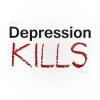Siebter
Less soul, more mind
It's is indeed physiological with respect to how it hammers the neurotransmitters and receptors in your brain. YOur cravings are not from simple habit or psychological reasons. Its set up by the drug's long term impact to your brain's chemistry.
So where does your psyche start?
The kind of impact of a substance (how hard it hits, how fast etc.) is rooted physiologically, that is true, and it does have a huge influence on developing an addiction, but it still is (in case of cocaine) a psychological addiction. Not your body is screaming for it (as it would for heroin or alcohol), your mind is. At least that's what mainstream science tells me. My experience with coke is minimal, so what do I know. What I do know is that cocaine doesn't always need „long terms“ in order to make someone obsessed over it.
Last edited:


 , be it ganja or otherwise.
, be it ganja or otherwise.